Asheville creates independent review committee in the wake of widespread water outages
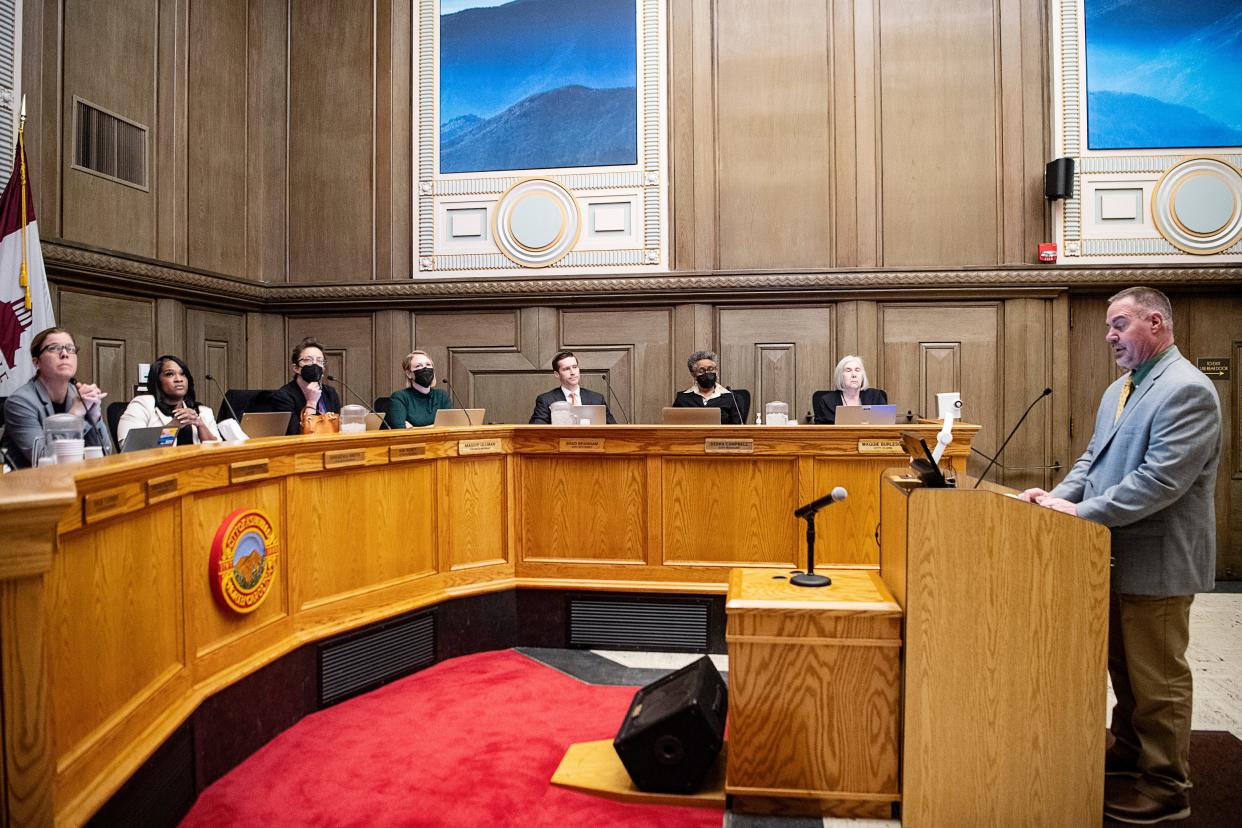
ASHEVILLE - A week after water was restored to Asheville area residents following unprecedented outages that impacted thousands and left some without water for days at a time, City Council unanimously approved the creation of a third-party independent review committee.
The decision was made amid a fountain of community frustrations, at times echoed by council members, many involving water distribution, internal and external communication, and the looming fear that this could happen again.
The Jan. 10 vote created a nine-member, multidisciplinary body to review the prolonged outage, provide a comprehensive account of the event, assess the city's operational and emergency response and communication efforts, and review and analyze infrastructure needs, process and policy changes.
It was one piece in a sprawling, nearly two hour conversation, in which council members, for the first time publicly, asked questions of staff, went down technical rabbit holes and attempted to explore gaps in transparency and communication.
Previous coverage:Asheville City Council member says she has been denied access to water outage details
More:Asheville to appoint independent review committee to assess city response to water crisis
Nine people spoke during the agenda item's public comment period, including South Asheville resident Bill Robbinson, who said his HUD-subsidized apartment building for the elderly and disabled was without water for five or six days.
"This was suffering that went on a long time," he said.
“Water is a necessity. This isn’t a disturbance during the holidays. It’s not a minor inconvenience or even a major inconvenience. This a betrayal of the public trust."
Several speakers called for better developed emergency plans, others criticized the city's communication, and the days it took before information was given on the extent of the burgeoning crisis.
Kim Murphy, an urban farmer in West Asheville, talked about the impacts to her farming friends and the wider community, and Judy Deau, who identified herself as a lifelong South Asheville resident, said she's never experienced anything like this outage.
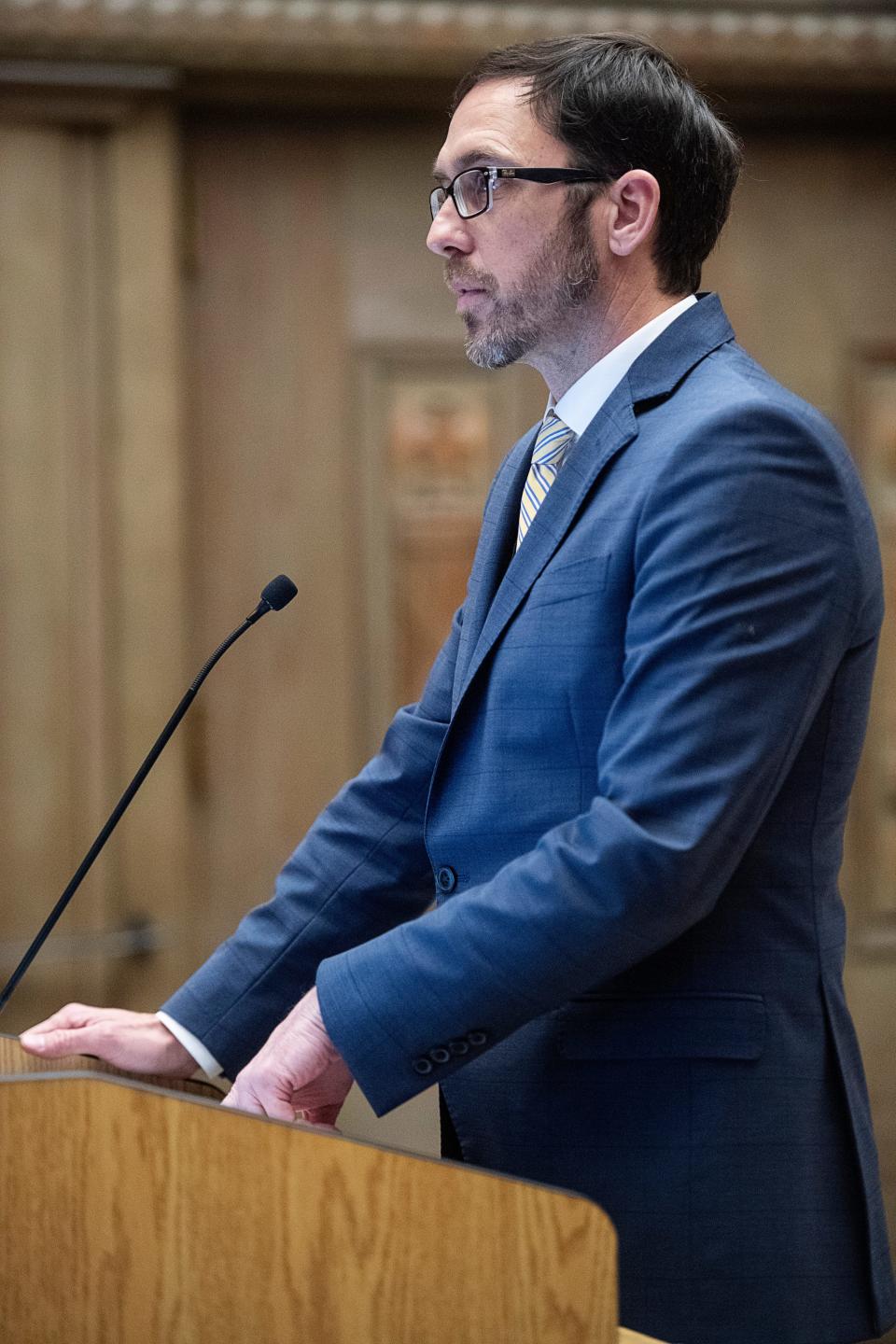
When grocery store shelves were bare, she said, her son brought her water from Charlotte. She feared that infrastructure was not keeping pace with a growing city.
Largely, speakers were in support of the committee but were concerned about implementation.
“I’m a retired city employee, I’ve seen these task forces form," Deau said. "They make recommendations, and then they’re just pushed to the side. ... I don’t want to see that happen again."
Also at the meeting, for the first time, the public was privy to an incident timeline, beginning with the widespread public and private line breaks during a Christmas Eve cold snap, and the issues that led the city's Mills River water treatment plant in Henderson County going offline.
“We understand how difficult this was for many residents and customers here in Asheville, and we know that obviously it will get cold again this year, so we are already preparing … to minimize any risk of this happening again," said Assistant City Manager Ben Woody. Along with Water Resources Director David Melton, Woody gave the presentation and fielded the bulk of the questions.
He said city staff is making improvements and fixes to strengthen the system. “I want to give some confidence to the public that the staff is already taking the immediate actions to try to ensure this doesn’t happen again.”
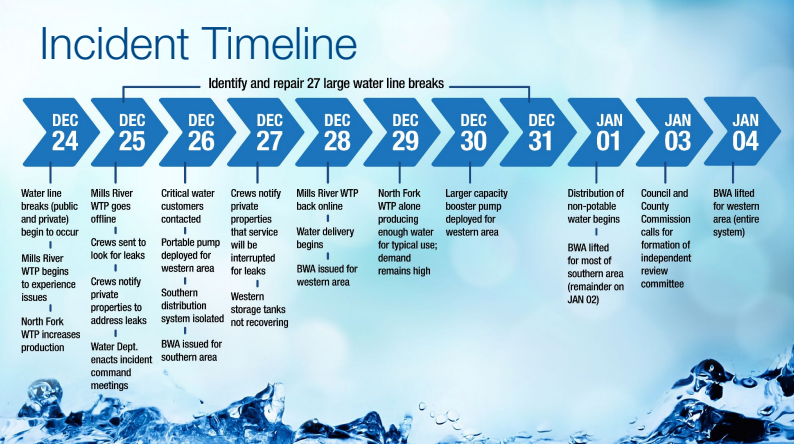
According to the narrative provided during the Jan. 10 City Council meeting, a "series of events" associated with subfreezing temperatures led to water outages in the southern and western portions of Asheville's water system.
"Numerous factors associated with the complexities of Asheville’s water system contributed to the outage, we regret this happened and are taking immediate and long-term steps to prevent and minimize impacts from occurring again during future events," said the presentation slides.
Complicating both the discussion and the restoration of residents' water is the city's difficult topography and the direction of water flow. Along with the Mills River plant, Melton said people on city water also are served by the North Fork water treatment plant in Black Mountain and the William DeBruhl plant in Swannanoa. The plants produce a combined average of 21.5 million gallons a day.
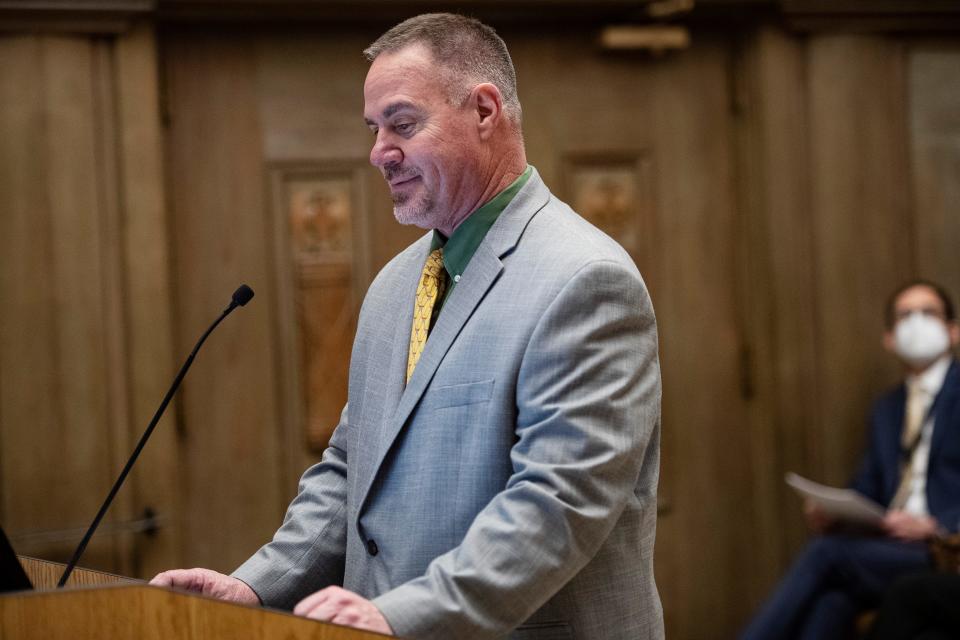
Asheville's water serves 156,000 customers, Melton said, in a 183 mile service area. The system is a combination of gravity fed and pumping zones, with 54 different pressure zones, 41 pump stations and 36 storage tanks.
During his presentation of the timeline, Melton said Dec. 26 was when the city got in contact with "critical customers," such as hospitals and medical centers.
“Later on that evening we came to the decision, which I can tell you was a very hard decision to come to, that we needed to separate the two systems again and work on the two areas separately. So at that point, we closed the control valves and isolated the southern distribution system. And we issued a boil water advisory for the southern area," Melton said.
More:4 stabbed at Marshall vacation rental, suspect in custody, 5 others face drug charges
"At that point in time, we were hopeful we would have Mills River back online … which didn’t happen.”
This spiraled a long discussion about why that decision was made, with council member Maggie Ullman wondering why the southern area was isolated, rather than a boil water advisory be issued for the entire city.
"At that point, when we came to that decision, part of it was to preserve as much of the water system as we could," Melton said.
The city has faced much criticism about its response to the emergency, as well as calls for more transparency and better communication. Many comments were made Jan. 10 to that effect, including from council member Antanette Mosley, who asked what the communication plan was for council.
Most council members did not receive word on the crisis until Dec. 26, with no direct notice from City Manager Debra Campbell until Dec. 27.
Mayor Esther Manheimer said while these situations look clearer in hindsight, one of the struggles was knowing when a situation gets to the point to trigger an emergency communication process.
"On this one, it seemed like, it wasn't clearly recognized yet that it was going to be a full blown emergency. It sort of simmered at first, and then it became apparent," Manheimer said.
One slide, labeled "immediate after action," laid out next steps for the city in the wake of the disaster:
Forming independent review committee.
Finalizing internal assessment of events to provide data to independent review committee.
Replacing, sealing or enclosing equipment or components to further maintain heat and prevent moisture intrusion.
Replacing and relocating chemical lines to create redundancies.
Providing additional insulation to outside chemical lines and where lines pass through a wall.
Requesting (manufacturers) provide site visits to check equipment.
More:Is snow coming soon to Asheville, Buncombe County? National Weather Service gives forecast
During council discussions, council member Kim Roney asked staff for a more detailed timeline of events to be provided.
"Even as we are getting more information, I know for some folks, this isn't the best way to receive information, verbally. We just need more information," she said.
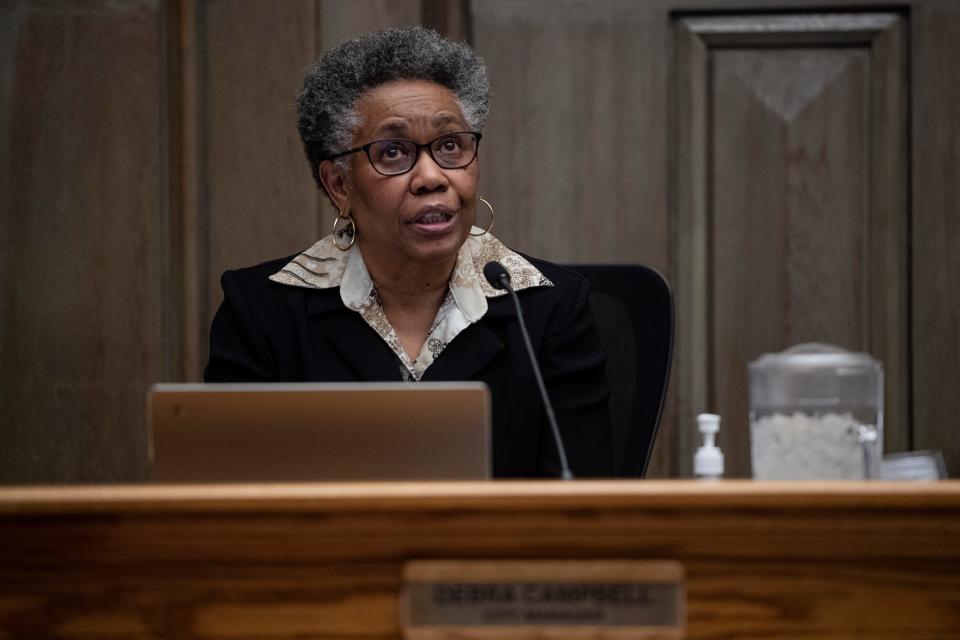
Campbell said that the city, "especially for the consumption of the general population," was trying to be as "general as possible."
"We are in the process of sharpening our pencils and doing the very, very detailed analysis and assessment and think that this independent review committee will also be reviewing and possibly addressing some of the challenges that we may have in the system," Campbell said.
What happens the next time freezing temperatures hit Asheville?
Before the motion was made to approve the resolution establishing an independent review committee, Roney asked between now and end of winter, what happens if the city gets more freezing temperatures?
"I feel confident, I have a lot of confidence in our water staff, and I think they are well underway in ensuring we don't experience this again, and I want to give confidence to our community, that that's going to be the case," Woody said in response. "Things happen, there's always unpredictable events, but I feel very confident that our staff is making preparations to ensure the likelihood of this happening again is almost zero."
More:Asheville Council appoints retired Marine, ROTC instructor Jesse Warren to school board
At the word "zero," Campbell interjected to caution against "overpromising and underdelivering."
"On a daily basis, we have waterline breaks. Almost on a daily basis," Campbell said. "What we are hoping is that we don't have the complexities of really, really cold weather for several days. We think that we're doing all of the upgrades that are needed to hopefully protect our system. And I think we'll definitely have learned in terms of response."
What will the independent review committee look like? How will it work?
According to the Woody's presentation, the committee will be made of nine members including two residential water customers, one commercial water customer, one emergency response professional, two communication professionals and three subject matter experts in public water systems.
Two appointments will be made by the Buncombe County Board of Commissioners and the rest by council.
A proposed timeline sets council appointment for its Jan. 24 meeting and county commission's appointments for Feb. 7.
More:'Slap in the face;' Asheville Reparations Commission balks at proposed timeline changes
More:As sex trafficking trial naming APD deputy chief starts, why are Asheville leaders quiet?
In mid to late February, in the 30 days after the committee's establishment, they are expected to "engage and expert," begin analysis and share updates to council.
In mid-May, 90 days from establishment, the committee will provide a final written response and presentation to City Council. Their recommendations will be used to consider and prioritize operational changes and construct and/or install equipment and infrastructure improvements.
Other next steps include implementing lessons learned into the Continuity of Operations Plan and Emergency Operations Plan and provide training to staff, as well as make revisions to the city's $72.8 million five year Water Capital Improvement Plan.
Manheimer has said, both in conversations with the Citizen Times and her discussion with county commissioners, that the city spends about $10 million each year in its capital program to upfit the city’s water system.
Sarah Honosky is the city government reporter for the Asheville Citizen Times, part of the USA TODAY Network. News Tips? Email shonosky@citizentimes.com or message on Twitter at @slhonosky.
This article originally appeared on Asheville Citizen Times: Asheville Council OKs independent review committee for water crisis
